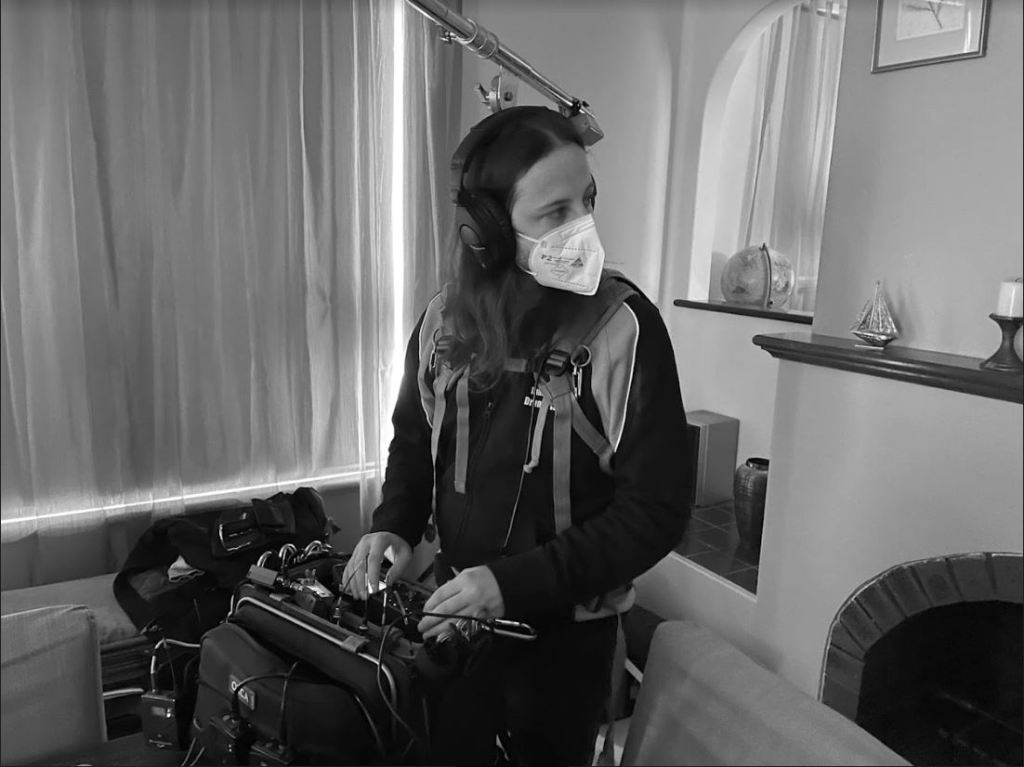After working as an actor on stage and screen for more than 20 years, Emma Jackson decided to give directing a go, and humbly states: “I think I’m okay at it”.
Having just celebrated an Australian Directors Guild nomination for her short documentary, Walk Run Strive, it would seem Jackson is more than just okay.
It is one of many accolades for the film that Jackson created while studying her Masters in directing at the WA Screen Academy.
Following a young athlete and disability advocate with cerebral palsy, the film was also a Yugo BAFTA Student Award finalist earlier this year, with Jackson flying to LA to attend with editor Alan Chambers. It also won the Best Student Film at the WA Screen Culture Awards and the WA Made Festival Audience Choice Award.
Jackson’s career is ramping up, having also recently completed a director’s attachment with Rachel Ward on Disney+ series Last Days of the Space Age. Ward advocated for Jackson to direct second unit, and she also ended up shooting the Perth unit of the show.
In Jackson’s words, she’ll always be an actor, but she recognises that as an actor, you have only control over your own performance and “often a lot of your work falls in the hands of other people.”
“Directing feels incredibly empowering because it’s a very collaborative process. I like being across the whole story; I just like collaborating with all the heads of department,” she says.
To kickstart her directorial career, Jackson enrolled in at the WA Screen Academy after moving back to Perth from Sydney during COVID to be closer to family.
While her acting career provided strong scaffolding – “storytelling is in my bones” – Jackson was keen to master the technical process of bringing projects to screen, from pre-production through to post. The way the course was structured meant that she was able to sit in on classes across the other disciplines to get a holistic view.
“You get to learn the whole gamut of the industry, but you’re only being assessed on your main specialisation. That’s hugely beneficial, because to understand how a set works and how you a production comes about, you need to understand what everyone else is putting in,” she says.
Jackson describes the course as extremely hands on, with students making client-based projects, whether that be a music video or a commercial, then a web series, and short films, both drama and documentary.
For Jackson, “learning by doing was invaluable”; the projects she worked on allowed her to build a portfolio quickly.
“I’ve had loads of experience being on sets, but from the other side of the camera it’s very different. The great thing about that course is you’re learning while you’re on set; making mistakes and having successes.”
In addition to Jackson’s successes with Walk Run Strive, her directing debut Deb was a finalist for Best WA Female Filmmakers Award at CinefestOz 2020, and she won the Academy’s Excellence in Directing Award for the short drama Fine Bone Drama. Another short doc she produced, Dare to Dream, also won the academy’s Best Documentary Award this year.
While at the academy, all students work on each other’s films, helping build connections. Further, they collaborate with WAAPA actors on their short dramas and web series, and work with WAAPA students across areas like composing, costume and design.
“I definitely met some creative collaborators that I know are going to be in my life for a very long time because you build a simpatico with them after working together time and time again,” Jackson says.
One of Jackson’s collaborators was sound graduate Jake Isard, who she worked with on Walk Run Strive.

Like Jackson, Isard has found incredible success through his studies at the WA Screen Academy. He was recently nominated for the Australian Screen Sound Guild’s Greg Bell Student Encouragement Award and won the Sandbox Student of the Year Award, which will grant him an internship with the post-production company in the new year. While at the academy, he and his team won best film for Stuffed, and since graduating, he is working on a Screen Australia-funded web series, Love Me Lex.
Isard came to the course having already completed two Bachelors’ degrees in sound and music, and working as a music teacher. He’d built a passion for how soundscapes could enhance visual stories and build emotion, and wanted to specialise further.
Originally, he’d started a research degree examining immersive audio formats, but when his brother enrolled at the WA Screen Academy in the cinematography stream, he decided to switch to something more practical. He enjoyed being able to work in different mediums than he had previously, such as interactive 360 virtual reality.
“The biggest difference in the Masters is mainly collaboration between all the students. In post-grad courses, you’re getting more committed people who want to continue their studies. Everyone’s working really hard to get along with everyone because they’re trying to achieve the same goals.”
Both Isard and Jackson note the value of industry connections facilitated at the WA Screen Academy. For instance, Jackson’s producing mentor in her first year was experienced feature film producer Tania Chambers. Jackson was also able to work as crew on some of director David Vincent Smith’s projects. Representatives from each of the guilds visit the students throughout the year, and the sound students visit the ABC studios; Isard was able to sit with the broadcaster’s sound mixer Kim Lord in his studio and pick his brains.
Further, all staff are working screen professionals. As Isard puts it: “As soon as you walk in the door and start your first class, you’re getting taught by people who have experienced it firsthand. It’s great knowing that it’s not someone who probably has done it in the past but has been out of the loop for a number of years. Everyone’s now and working in the industry, so you feel like everything’s quite valid.”


